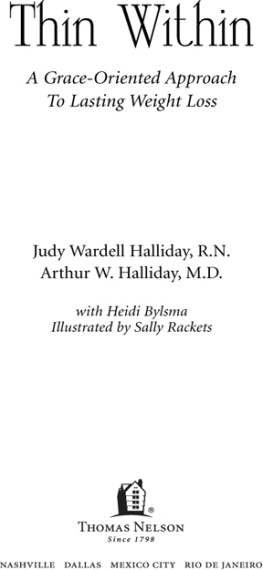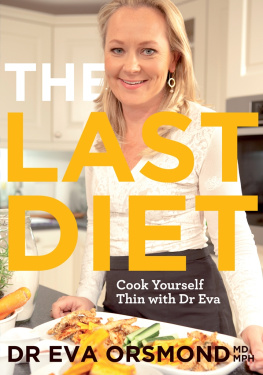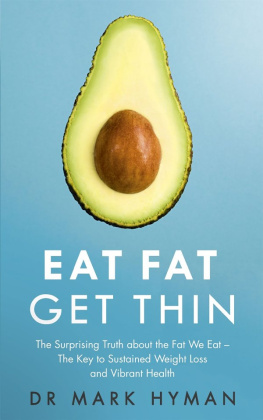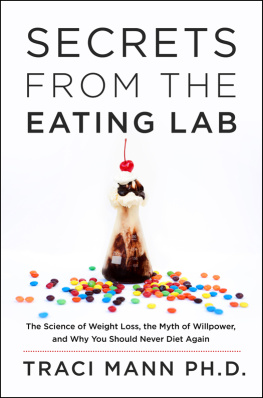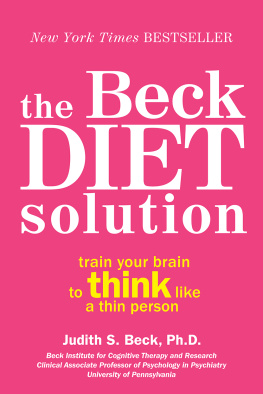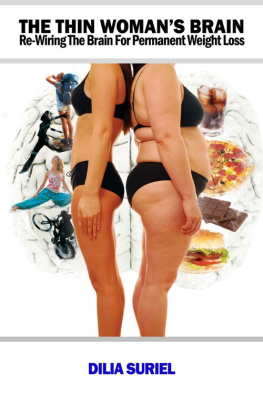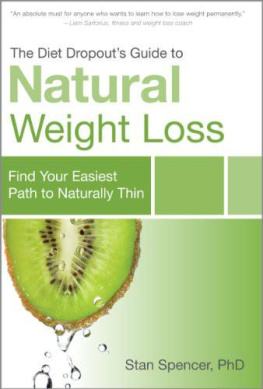T hree obesity researchers were having breakfast at a medical meeting in Charleston, South Carolina, a few years ago when their talk inevitably turned to the Atkins diet. It had reached a new peak of popularity, and they were simply annoyed with the diet and the whole low-carb movement. It just irked them that this seemingly irrational way to lose weight, this seemingly unhealthy, if not dangerous, diet scheme, was being hailed as the secret to effortless and permanent weight loss. The whole Atkins movement was built on testimonials, they groused.
We kept saying, Nobody has any data, said Gary D. Foster, who was the clinical director of the weight loss center at the University of Pennsylvania. Finally, the three decided, Why not do a study? They had not applied for funds, but they were curious enough to do some research anyway. It would be quick and dirty, Foster remarked, just a brief look at whether the Atkins diet had any value. The three fully expected to discredit it, showing it was no better, maybe even worse, than traditional diets for weight loss, and dangerous to boot. They just knew that the diet was going to do something awful to cholesterol levels and that people who followed it were going to be risking a heart attack.
And, they slowly realized, they also would be asking a question that, amazingly enough, had never been asked in a rigorous way: Is one diet any better than another? You might think that with all the years, all the decades , of obesity research, the answer would be obvious. Its a question that, of course, would have been well studied. But you would be wrong. That question, that fundamental question, had just been left dangling.
And so it began, the first attempt to compare the Atkins diet with something more traditional, the standard low-calorie, low-fat diet beloved of academic weight loss clinics.
The study took place at three medical centersthe University of Pennsylvania, the University of Colorado, and Washington University in St. Louisand was directed by the three doctors who conceived it. It was small, involving just sixty-three obese men and women, people whose average weight was 216 pounds. And it lasted for one year. The subjects were randomly assigned to follow the Atkins dietthe researchers handed them the book Dr. Atkins New Diet Revolution or to follow a diet and behavior modification plan written by Kelly Brownell, a Yale psychologist who publishes an earnest textbook-like manual called The LEARN Program for Weight Management . We picked LEARN because it is the most frequently used manual [at weight loss centers], Foster explained. It is the gold standard for weight loss and behavioral weight control.
No one could have been more surprised than these researchers when they saw the results.
The Atkins diet, they discovered, seemed better than the usual diet program, at least for the first six months; the subjects weight loss, an average of 7 percent of their body weight, was twice as good as with the low-calorie diet. Granted, no one lost much weight, and granted, 40 percent of each group dropped out, and granted, by the time a year was up, the two groups were about equal in their total weight loss and almost everyone in either group who lost weight had regained most of it. The Atkins dieters ended up, on average, losing 4.4 percent of their body weight, or about 9 pounds, and the low-calorie dieters lost about 2.5 percent, or about 5 pounds, but the difference between the groups was not statistically different. Still, the Atkins diet, to the investigators astonishment, led to higher levels of HDL cholesterol, which is linked to protection against heart disease, and lower levels of triglycerides in the blood, which also indicate a reduced heart disease risk. The conventional diet did just the opposite.
Thats not what we expected, Foster said. How did it happen? Was it good? Was it bad? Was it indifferent? And, most important, What is the best way to lose weight?
This last one is a fraught question, of course. To someone like Gary Foster, tall with a long, gangly body and barely a hint of a paunch, a man who does not worry about his weight, the question is of academic interest. It is a research puzzle, a query that could lead to more grants for his universitys weight loss center, which paid his salary, and that could lead to publications in leading medical journals, bolstering his professional reputation. But for the millions of overweight people who have spent their lives obsessing about food, veering from one diet, one weight loss plan, to another, thinking about food and their weight every day of their lives, the question is all too immediate.
The three researchers published their results in the May 22, 2003, issue of the New England Journal of Medicine , one of the most prestigious medical journals. Their paper was accompanied by an editorial that ended with the usual platitudes. The recipe for effective weight loss is a combination of motivation, physical activity, and caloric restriction, it said. Until further evidence is available regarding the long-term benefits of a low-carbohydrate approach, physicians should continue to recommend a healthy lifestyle that includes regular physical activity and a balanced diet.
The editorial, of course, dodged the question. Is it possible for most people to permanently lose weight? And, if so, how? If a healthy lifestyle were enough, would two-thirds of the nation have a weight problem? Would the nation be gripped by what is often called an obesity epidemic, as evidenced by the grim statistics of a growing national girth? The percentage of people who are overweight or obese was a whopping 47 percent in the period from 1976 to 1980, but now it is an even more whopping 64 percent.
The overweight say it is not that they dont try to be thin. All they do is try, many say, but nothing seems to help.
They may never have asked whether there is any scientific evidence that one diet is better than another, but most have, in a sense, experimented by themselves, trying diet after diet, hoping to find one that will lead them to their dream weight. They long for the weight that would let them buy clothes in the size they think is really them, or that would give them the sort of confidence in their weight loss that would let them enjoy an ice cream cone without the dread that just a taste of a forbidden treat will set off an out-of-control eating binge, or that would allow them to eat Thanksgiving dinner without the dismal conviction that they will pay for every bite with extra pounds.
They are like Linda Lee, a New York Times writer, who tried the Atkins diet. It worked, but then she backslid. I just had to have a piece of bread, a slice of pizza, a muffin, and the weight came back. She went on the punishing Ornish no-fat diet, but after losing weight she gained it back again. She bought prepared meals that were made according to the Zone Diet; she went to Weight Watchers. She even tried self-hypnosis, to no avail. The next plan? I am going back on the Atkins diet.
The knotty problem was described in a report on obesity treatments by the National Academy of Sciences. Its committee of medical experts concluded that the battle for weight control is never won, even after you lose weight. An obese individual faces a continuous lifelong struggle with no expectation that the struggle required will diminish with time. For most people, even a brief abatement in effort will be met with a significant setback in control.
Yet there are those who manage to rid themselves of extra fat, like Richard Wurtman, director of the Clinical Research Center at the Massachusetts Institute of Technology. Wurtman got control of his weight decades ago and has never regained the pounds he lost. He is by no means naturally thin; he says, I am a fat man in a thin mans body. But, somehow, he beat what groups like the National Academy would describe as overwhelming odds. Was it he who beat the odds, or was it his methods?





